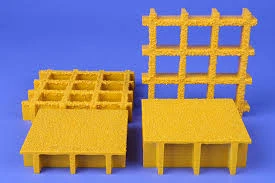loading...
- No. 9, Xingyuan South Street, Dongwaihuan Road, Zaoqiang County, Hengshui, Hebei, China
- admin@zjcomposites.com
- +86 15097380338
- Welcome to visit our website!
UV Water Purification System for Effective and Sustainable Water Treatment Solutions
UV Water Treatment Systems A Comprehensive Overview
In today’s world, ensuring access to clean and safe drinking water is a fundamental necessity. One of the most efficient and environmentally friendly methods of purifying water is through ultraviolet (UV) water treatment systems. UV technology utilizes ultraviolet light to eliminate harmful microorganisms, providing a reliable solution for water disinfection.
How UV Water Treatment Works
UV water treatment systems operate on a relatively simple principle. The process involves passing water through a chamber where it is exposed to UV light, specifically in the wavelength range of 200 to 300 nanometers. This spectrum of light is highly effective at inactivating bacteria, viruses, and other pathogens by damaging their DNA or RNA, rendering them harmless and incapable of reproduction.
The efficiency of UV treatment greatly depends on the intensity of the UV light and the time the water is exposed to it. Most systems are designed to provide adequate exposure time, ensuring a high level of disinfection. Unlike chemical treatments, UV does not add any substances to the water, nor does it alter its taste or odor.
Advantages of UV Water Treatment
1. Effectiveness Against Pathogens UV treatment is highly effective against a variety of microorganisms, including bacteria, viruses, and protozoa. Notably, it can deactivate pathogens like E. coli, Giardia, and Cryptosporidium, which are resistant to chlorine disinfection.
2. Chemical-Free Process One of the primary advantages of UV systems is that they do not rely on chemical additives. This makes UV treatment safe for the environment and eliminates concerns regarding chemical by-products.
3. Minimal Maintenance UV systems generally require less maintenance compared to other water treatment methods. The primary maintenance task is to replace the UV lamp periodically, usually once a year, and to clean the quartz sleeve that houses the lamp to ensure optimal performance.
4. Space Efficiency UV water treatment units are compact and can easily be installed in various settings, from residential homes to large municipal water treatment facilities, without requiring significant modifications to existing plumbing.
uv water treatment system

5. Cost-Effectiveness While the initial investment for a UV system may be higher than that of some chemical treatments, the long-term costs tend to be lower. This is due to the lack of chemical purchases and the reduced need for manual intervention.
Limitations of UV Water Treatment
Despite its many advantages, UV water treatment is not without limitations. For instance, UV systems require clear water to be effective. If the water contains high levels of suspended solids, turbidity, or organic materials, these can shield microorganisms from UV light, diminishing the system’s effectiveness. Pre-filtration may be necessary in such cases to ensure optimal performance.
Furthermore, UV treatment does not provide a residual disinfectant effect. This means that while it effectively disinfects water as it passes through the system, it does not prevent recontamination after treatment. Therefore, UV systems are often used in conjunction with other treatment methods, such as filtration or chemical treatments, to ensure comprehensive safety and quality.
Applications of UV Water Treatment
UV water treatment systems have a wide range of applications. They are commonly used in
- Residential Water Filtration Homeowners invest in UV systems for their drinking water to ensure safety from microbial contamination. - Municipal Water Treatment Many cities incorporate UV treatment into their water purification processes to meet safety standards for public health. - Aquaculture and Agriculture UV systems help maintain clean water in fish farms and irrigation systems, ensuring the health of crops and livestock. - Hospital and Laboratory Settings Due to the need for sterile environments, hospitals and laboratories often utilize UV treatment to disinfect water used in medical procedures and experiments.
Conclusion
In conclusion, UV water treatment systems stand out as a powerful, efficient, and environmentally friendly solution for water purification. As concerns about waterborne diseases and contamination continue to grow, the adoption of UV technology is likely to expand. By providing safe and clean water, UV systems play an integral role in promoting public health and environmental sustainability in an increasingly water-challenged world.
-
The Rise of FRP Profiles: Strong, Lightweight, and Built to LastNewsJul.14,2025
-
SMC Panel Tanks: A Modern Water Storage Solution for All EnvironmentsNewsJul.14,2025
-
GRP Grating: A Modern Solution for Safe and Durable Access SystemsNewsJul.14,2025
-
Galvanized Steel Water Tanks: Durable, Reliable, and Ready for UseNewsJul.14,2025
-
FRP Mini Mesh Grating: The Safer, Smarter Flooring SolutionNewsJul.14,2025
-
Exploring FRP Vessels: Durable Solutions for Modern Fluid HandlingNewsJul.14,2025
-
GRP Structures: The Future of Lightweight, High-Performance EngineeringNewsJun.20,2025
